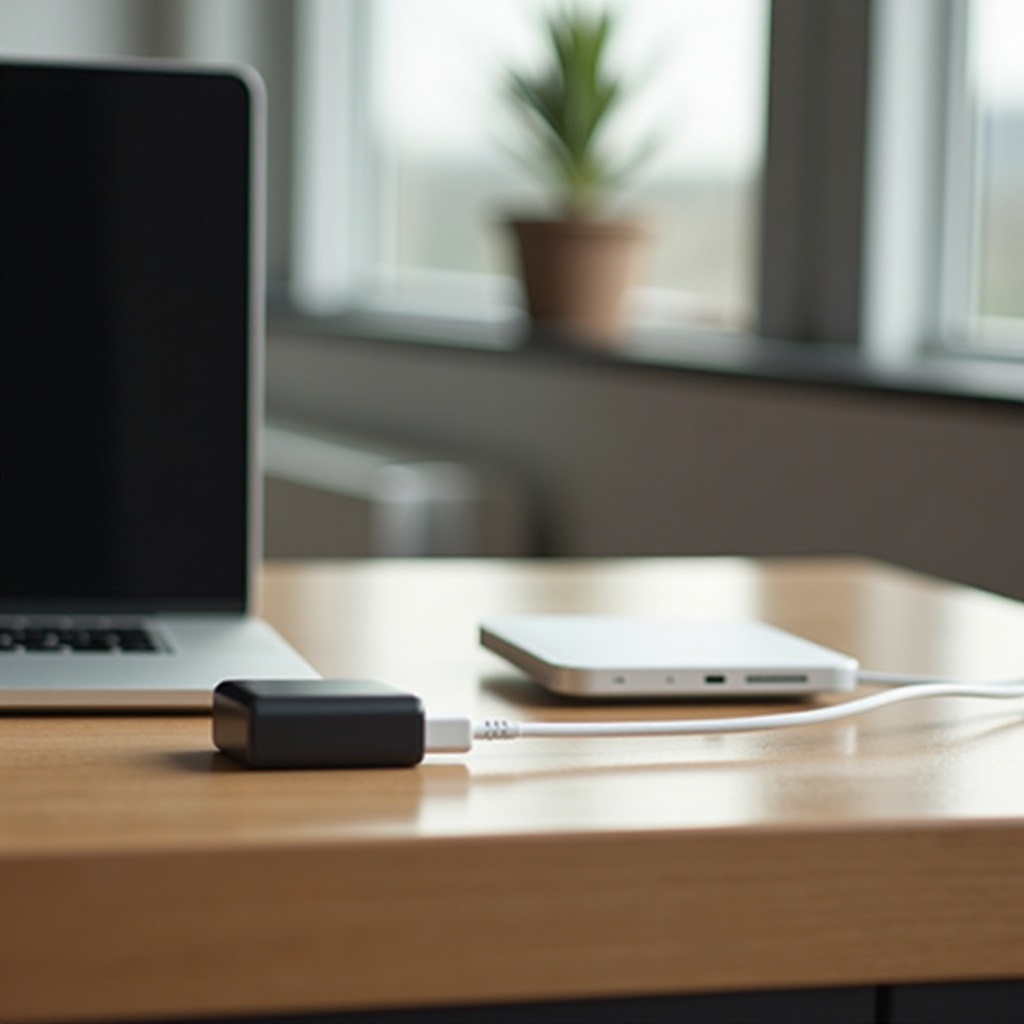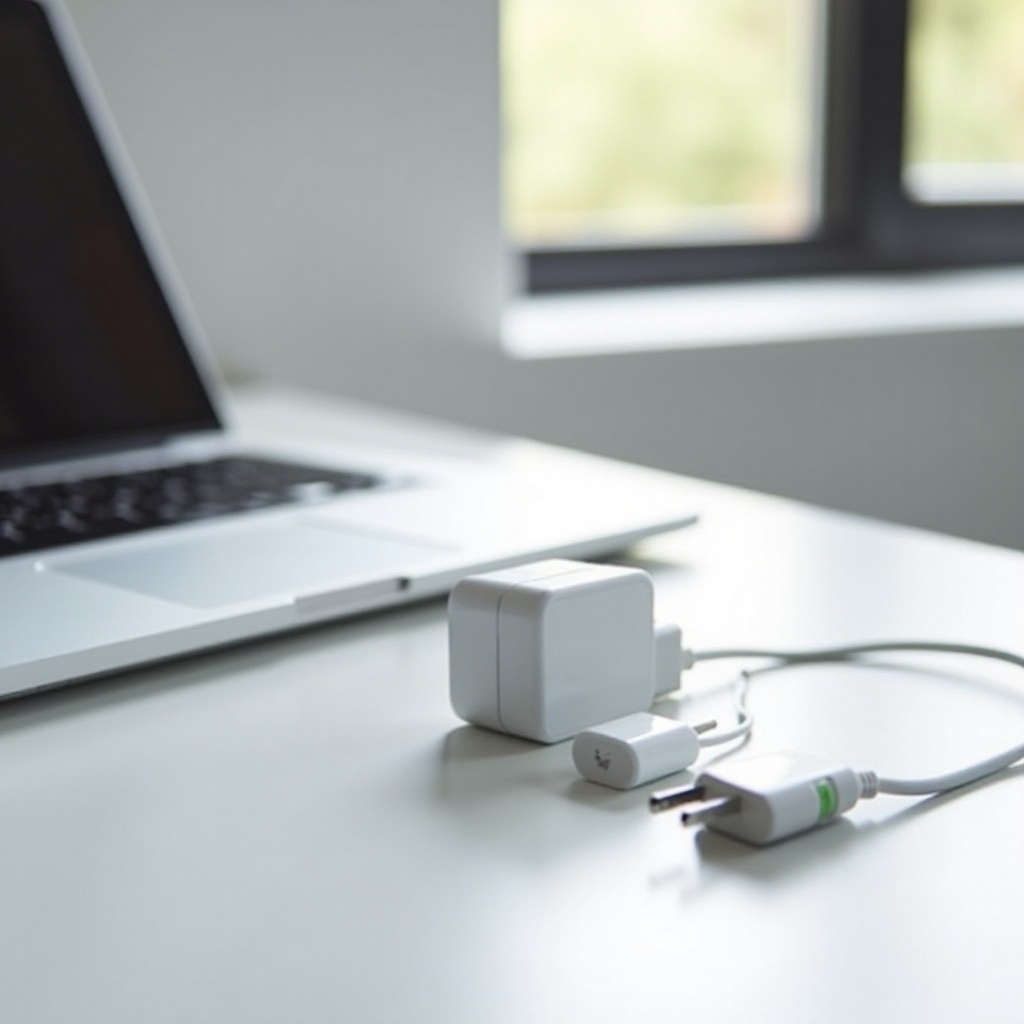Introduction
Choosing the right charger for your MacBook Pro is essential for maintaining optimum performance and battery health. Sometimes, you may find yourself needing a portable or smaller charger, but questions arise about safety and compatibility. This blog will elucidate various aspects of using a smaller charger, including its risks, benefits, and some common myths. By the end, you’ll be able to make an informed decision about whether a smaller charger is the right choice for you.

Understanding MacBook Pro Charging Specifications
To ensure your MacBook Pro runs efficiently, it’s crucial to understand its charging specifications. MacBook Pro models come with their own recommended wattage chargers. Apple typically bundles a 61W, 87W, or 96W charger depending on the MacBook Pro model. These chargers are designed to deliver the optimal current and voltage for charging and maintaining your device’s battery health.
MacBook Pros require a USB-C charger that supports Power Delivery (PD), which ensures the device receives the correct amount of power. The device’s battery management system regulates the power it receives, preventing overcharging and excessive heat.
Using a smaller charger, such as a 30W or 45W adapter, means the device will receive less power than it is designed to handle. While it might work initially, there can be various implications for the battery and overall performance. Let’s delve deeper into the risks and benefits of using a smaller charger.
Risks of Using a Smaller Charger
Using a smaller charger might seem convenient, but it comes with several potential risks. Here are some concerns:
- Slower Charging: A smaller charger takes longer to charge your MacBook Pro. If you’re in a hurry or need a quick top-up, the slower charging times can be frustrating.
- Increased Heat and Stress: Smaller chargers work harder to keep up with the power demands of your MacBook Pro, leading to increased heat generation. Excessive heat can degrade the battery and surrounding components over time.
- Battery Health: Consistently using a lower wattage charger can affect your battery’s health in the long term. The MacBook Pro’s smart battery management system does well in managing power, but sustained undercharging can reduce battery lifespan.
- Performance Issues: The MacBook might limit its processing power or activity to manage energy consumption, potentially leading to slower performance or reduced functionality in power-intensive tasks.
- Compatibility Issues: Not all smaller chargers are fully compatible with all MacBook models. Using an incompatible charger could result in frequent disconnections or charging failures.
Despite these risks, some individuals still opt for smaller chargers due to their particular needs and lifestyles. Therefore, let’s also consider benefits and scenarios where a smaller charger might be appropriate.

Benefits of Using a Smaller Charger
While smaller chargers have risks, there are specific benefits that might make them suitable for certain scenarios:
- Portability: Smaller chargers are easier to carry and more convenient for travel or daily commuting. They add less weight to your bag and occupy less space, making them ideal for on-the-go use.
- Cost Efficiency: If you already own a smaller charger, using it temporarily can save you from purchasing a new one. Just ensure it meets some basic safety standards.
- Emergency Backup: Smaller chargers can serve as useful backups or emergency charging solutions if your primary charger fails or is unavailable.
- Reduced Power Consumption: Smaller chargers consume less power. While this is minimal for most users, it can marginally reduce energy consumption, which may appeal to environmentally conscious individuals.
- Versatility: Some smaller chargers are designed to work with multiple devices, adding convenience for those using various gadgets.
In balance, while smaller chargers are not ideal for regular or heavy-duty use, they can be handy in specific circumstances where portability, cost, or emergency use are priorities.
Common Myths and Misconceptions
Several myths and misconceptions surround the use of smaller chargers for MacBook Pros:
- ‘Smaller chargers are always unsafe’: Not necessarily. They can be safe for occasional or emergency use, provided they meet certain specifications.
- ‘Using a smaller charger will void the warranty’: Apple generally encourages using their proprietary chargers, but using a third-party charger doesn’t automatically void your warranty unless damage is proven to be a direct result.
- ‘Smaller chargers ruin the battery immediately’: While consistent use can degrade battery life, occasional use of a smaller charger isn’t likely to cause immediate harm.
Understanding these misconceptions can help you make more informed choices and debunk unnecessary fears.
Choosing the Right Smaller Charger
When selecting a smaller charger for your MacBook Pro, consider the following tips:
- Check Compatibility: Ensure the charger is compatible with USB-C PD and that it supports your MacBook Pro’s power requirements.
- Verify Output: Look for chargers with a minimum output of 30W, although higher is better. Opt for brands known for charging efficiency and reliability.
- Quality and Certification: Use only chargers that are certified by relevant authorities. Avoid cheap or counterfeit chargers that lack proper safety mechanisms.
- User Reviews and Recommendations: Check user reviews and professional recommendations to ensure the charger performs well and is reliable for MacBooks.
These steps can guide you in selecting a smaller charger that aligns with your needs while minimizing potential risks to your MacBook Pro.

Conclusion
Selecting the right charger is crucial for maintaining your MacBook Pro’s performance and battery health. While smaller chargers offer portability and convenience, they also present risks such as slower charging times, increased heat, and reduced battery lifespan. It’s essential to understand the trade-offs and use a smaller charger only when necessary, ensuring it meets appropriate standards and compatibility requirements. By being informed about how your MacBook Pro charges and the implications of using different types of chargers, you can make a more confident decision that suits your needs.
Frequently Asked Questions
Is it safe to use a smaller charger for my MacBook Pro?
Using a smaller charger occasionally is generally safe if the charger is from a reputable brand and meets USB-C PD standards. However, avoid consistent long-term use to prevent potential risks like slower charging and reduced battery life.
How can I tell if a smaller charger is compatible with my MacBook Pro?
Check for USB-C PD compatibility and the charger’s wattage output. Opt for a charger with at least 30W and ensure it’s from a reliable manufacturer with certifications. Review user feedback to confirm compatibility.
Will using a smaller charger affect my MacBook Pro’s battery life?
Consistent use of a smaller charger can potentially reduce battery longevity due to slower charging cycles and increased stress. Occasional use is less likely to cause significant harm, but it’s best to use higher wattage chargers designed for your specific MacBook Pro model for regular charging.

